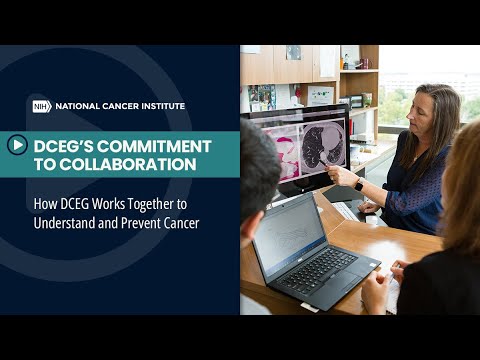
Mitchell Machiela, Sc.D., M.P.H.
NCI Shady Grove | Room 7E108
Biography
Dr. Machiela received his B.S. in biology from Calvin University, Grand Rapids, Michigan, his M.P.H. in epidemiology from the University of Michigan, Ann Arbor, and his Sc.D. in epidemiology from the Harvard T.H. Chan School of Public Health, Boston, Massachusetts. His doctoral thesis focused on germline genetics and prostate cancer risk. Dr. Machiela joined the Laboratory of Translational Genomics as a postdoctoral fellow in 2012 and transitioned to the Laboratory of Genetic Susceptibility in 2015. In 2016, he was promoted to research fellow. Dr. Machiela was appointed to the position of Earl Stadtman Tenure-Track Investigator in the Integrative Tumor Epidemiology Branch in 2017 and was promoted to senior investigator and awarded NIH scientific tenure in 2024. He received the DCEG Outstanding Mentoring Award in 2020 and the NCI Director's Award in 2021.
Visit the Machiela group on Github
Research Interests
Dr. Machiela’s research is focused on understanding how inherited (germline) variation and acquired (somatic) mutations individually and jointly affect cancer risk.
He is leading studies of large-scale genetic mosaicism to investigate the causes of acquired mosaic chromosomal alterations and their impact on cancer risk. He also conducts and analyzes genetic association studies to investigate the underlying genetic architecture of different cancers (e.g., pediatric and adult cancers) and identify potential germline-somatic interactions.
Dr. Machiela's Research Team
Dr. Machiela's Research Group includes the following fellows:
- Kara Barnao, B.S., M.S., postbaccalaureate fellow
- Rebecca L. Kelly, Ph.D., M.P.H., postdoctoral fellow
- Corey Young, Ph.D., M.S., postdoctoral fellow
- Shahriar Zamani, Ph.D., postdoctoral fellow
Former Fellows
- Aubrey K. Hubbard, Ph.D., M.P.H., postdoctoral fellow
- Derek Brown, Ph.D., M.S., postdoctoral fellow
- Shu-Hong Lin, Ph.D., M.S., postdoctoral fellow
- Olivia Lee, Ph.D., predoctoral fellow
Genetic Mosaicism
Genetic mosaicism results from an acquired DNA mutation that is present in some of the body's cells but not in others. A person with mosaicism has a mixture of normal and mutated cells. Dr. Machiela has published findings that estimate the frequency and distribution of mosaic chromosomal alterations in existing genotyped populations of blood and buccal DNA. His research utilizes existing genotype data from DCEG studies and merged international consortia to enable well-powered investigations of mosaicism and cancer risk.
Relatively little is known of the mechanisms that initiate and select for mosaic alterations. Results from his previous work suggests inherited germline variation (e.g., at TCL1A) or environmental exposures (e.g., smoking) may predispose to mosaicism. To expand genetic knowledge of mosaic alterations on sex chromosomes, Dr. Machiela co-led a large international consortium that identified genetic drivers and cellular selection of female mosaic X chromosome loss. Dr. Machiela also utilizes genotyped samples from DCEG special exposure and disease populations to examine endogenous and exogenous factors influencing acquisition of detectible mosaicism.
Acquired mosaic chromosomal alterations have abundant potential to inform cancer etiology and alter disease risk. Dr. Machiela has found evidence suggesting mosaicism increases cancer risk for hematologic malignancies and select solid tumor subtypes. During the COVID19 pandemic, Dr. Machiela and a team of international investigators identified mosaic chromosomal alterations associated with increased infectious disease risk, including COVID19 severity. His research program continues to examine the influence of mosaicism on cancer risk in special exposure populations and various tissue types.
Genetic Architecture of Cancer
Dr. Machiela and colleagues have published several genome-wide association studies (GWAS) of adult cancers, including prostate cancer, renal cell carcinoma, and melanoma. He is working to better understand the genomic architecture of cancer by performing genetic association studies in pediatric cancers and combining data on germline and somatic variation to better understand cancer genetic etiology and improve risk prediction.
Pediatric cancers like Ewing sarcoma (ES) provide a unique opportunity to study a homogenous tumor with potentially larger genetic contribution to risk. Dr. Machiela is leading a GWAS on ES to identify susceptibility regions and elucidate the underlying genetic architecture of ES. Findings from this ES GWAS have led to further regional sequencing to investigate germline-somatic interactions with ES fusion oncoproteins. Dr. Machiela also performs pan-cancer GWAS on adult malignancies in the PLCO study and is developing the GWAS Explorer as a platform to examine, visualize, and share PLCO GWAS summary statistics across several traits.
Dr. Machiela is also the creator of numerous web-based tools including:
- LDlink supports interactive exploration of linkage disequilibrium across 1000 Genomes population groups. LDlink is tailored for investigators interested in mapping disease susceptibility loci and highlighting putative functional variants.
- The PLCO Atlas, part of the GWAS Explorer, accelerates innovative analysis of GWAS results through a dynamic framework of interactive visualizations designed to aid in uncovering novel connections and spark new avenues of investigation.
- AuthorArranger is an online tool that helps researchers and consortia create and format title pages for journal submission.
Information for Journalists
To request an interview with a DCEG investigator, please complete this form: Request For Comment | HHS.gov.


